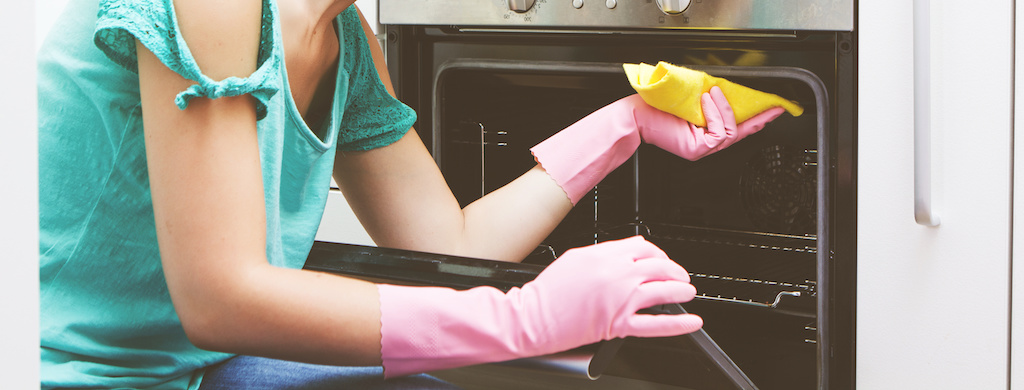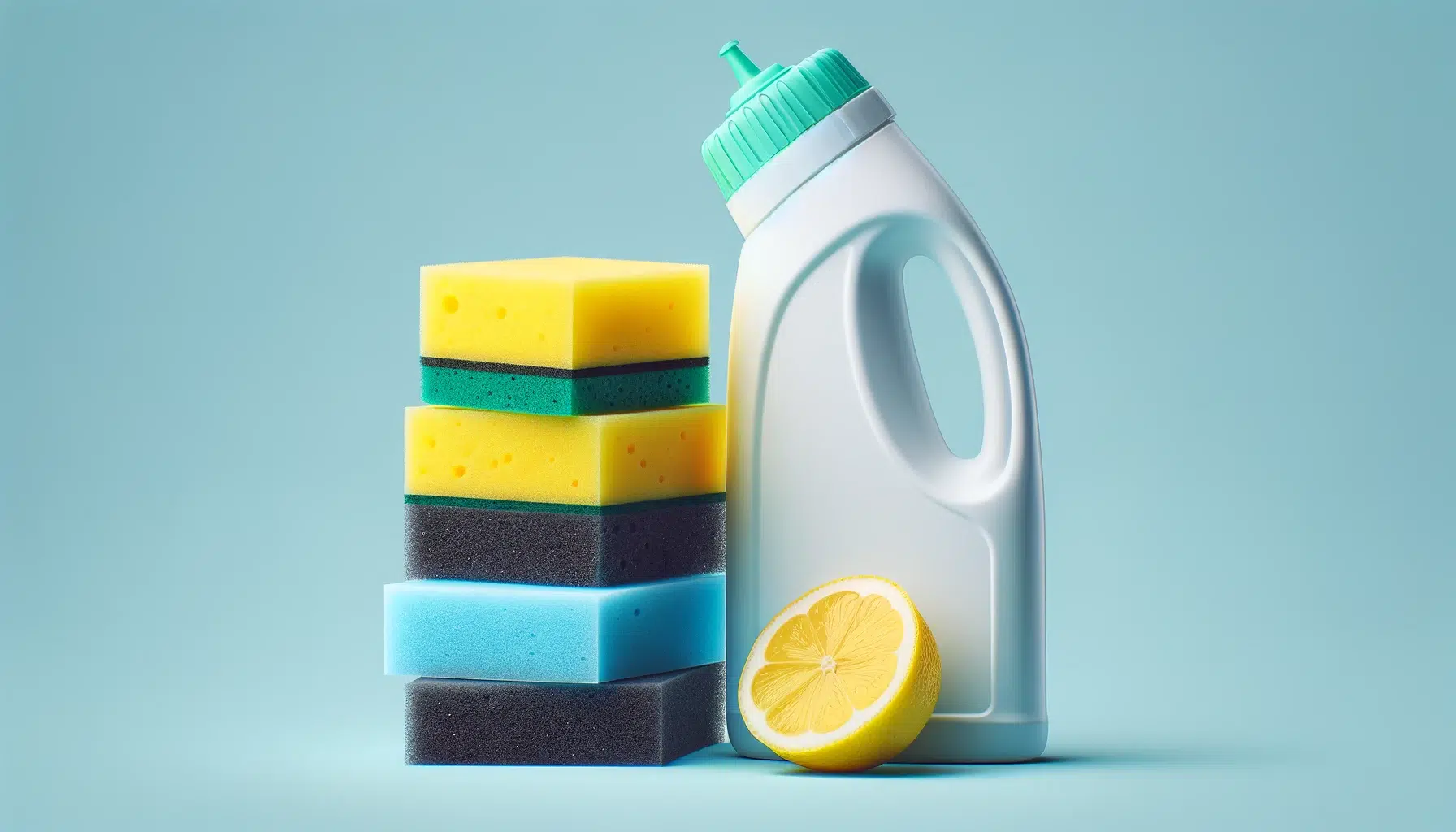Are you tired of using harsh chemicals to clean your oven? There’s a simpler, eco-friendly solution right in your kitchen! Today, we’ll dive into how you can achieve a sparkling clean oven using just lemons. This method not only leaves your kitchen smelling fresh but also ensures a safe, chemical-free environment for your cooking adventures. Plus, for those times when life gets too busy, remember that Wecasa cleaning services are just a booking away, offering professional and eco-friendly cleaning solutions for every corner of your home.

Why Use Lemons for Oven Cleaning?
Lemons, nature’s own citrus powerhouse, are more than just a kitchen staple. They’re an eco-friendly solution to your toughest cleaning jobs, especially oven cleaning. Here’s why:
- Natural Acidity: The citric acid in lemons is a natural degreaser, effective in breaking down oven grime and grease.
- Eco-Friendly and Safe: Lemons are safe to use around food areas, unlike chemical cleaners that can leave harmful residues.
- Fresh Scent: Say goodbye to the strong, chemical odours of conventional oven cleaners. With this natural cleaner, you can leave your kitchen smelling fresh and clean.
What You Need
To clean your oven with lemons, you’ll need:
- 2-3 large lemons
- Water
- A small oven-proof bowl
- A spray bottle (optional)
- A sponge or scrubbing brush
- Soft cloths or paper towels

Step-by-Step Guide to Cleaning Your Oven with Lemons
Follow these simple steps for a naturally clean oven:
Preparation:
- Start by removing any loose bits of food or debris from your oven. This initial step ensures the lemon cleaning solution works directly on the grime and grease.
- Preheat your oven to 250°F (120°C) for about 15 minutes, then turn it off. Warming up the oven helps to soften the grime, making it easier to clean without harsh chemicals.
- Take a small oven-proof bowl and fill it with water. Squeeze the juice of 2-3 large lemons into the water, ensuring you capture as much of the juice as possible for its cleaning properties. Drop the lemon halves into the bowl as well; their oils will help amplify the cleaning effect and fragrance.
Cleaning Process:
- Place the bowl with the lemon water on the middle rack of your oven. Turn the oven back on to 250°F (120°C) and let it heat for about 30 minutes. The steam from the lemon water will help loosen the grease and soften the baked-on grime.
- After the oven has been heated, turn it off and allow it to cool slightly, but it should remain warm to the touch. This ensures that the grime is still soft enough to be scrubbed away easily.
- Wear gloves to protect your hands from the heat and grime. Dip a sponge or scrubbing brush into the lemon-infused water and start scrubbing the interior surfaces of your oven. The acidity of the lemon water will help break down the grease and grime.
- For particularly tough spots, you might find it helpful to apply lemon juice directly to the area. Let it sit for a few minutes to penetrate the grime before scrubbing. If necessary, create a paste by mixing some baking soda with lemon juice for an extra cleaning boost.
Rinsing and Drying:
- Once you’ve scrubbed the entire oven, take a damp cloth or paper towel and wipe down the interior to remove any lemon residue along with the loosened grime.
- Finally, dry the interior of the oven with a soft cloth. This step not only removes any lingering moisture but also polishes the surface, leaving your oven looking bright and clean.
By following these steps, not only will your oven be clean, but your kitchen will also be filled with a pleasant, fresh lemon scent. This method is not only effective but also ensures you’re cleaning your oven in an eco-friendly and safe way.
Tips and Tricks for the Best Results
- Enhancing Cleaning Power: Add a tablespoon of baking soda to your lemon water mixture for extra grease-cutting power.
- Hard-to-Clean Areas: For stubborn spots, apply a paste of baking soda and lemon juice directly and let it sit before scrubbing.

Comparing Lemon Cleaning to Conventional Methods
| Aspect | Lemon Cleaning | Conventional Methods |
|---|---|---|
| Safety | Non-toxic, safe | May contain harmful chemicals |
| Environmental Impact | Eco-friendly, biodegradable | Often not eco-friendly |
| Scent | Fresh, natural | Chemical, overpowering |
| Effectiveness | Great for regular maintenance | May be better for very tough grime |
Frequently Asked Questions
- How frequently should I use lemons to clean my oven? A lemon cleaning every few months will keep your oven in tip-top shape for regular upkeep. If you often find yourself in the midst of culinary adventures, you might want to increase this cleaning frequency to handle the heavier workload.
- Is it possible to clean other kitchen gadgets with lemons? Indeed, lemons prove to be quite versatile in the cleaning arena! They’re perfect for sprucing up microwaves, giving a new shine to refrigerators, and even tackling the gleam of stainless steel surfaces.
- Are there any downsides to cleaning with lemons? Lemons excel in general cleaning tasks and refreshing your appliances with their deodorizing powers. However, when confronted with grime that’s truly set in or burnt to a crisp, lemons may find themselves a bit outmatched. A good soak or an additional round of cleaning might just be the trick for these tougher situations.
- Is lemon cleaning effective for removing odors from the oven? Yes, lemon cleaning is highly effective for odor removal. The natural acidity of lemons neutralizes odors, leaving your oven smelling fresh without the use of artificial fragrances.
- Can lemon juice damage my oven’s interior surfaces? Lemon juice is generally safe for all types of oven interiors, including self-cleaning and continuous cleaning ovens. However, it’s always a good idea to test a small, inconspicuous area first if your oven has a unique or sensitive coating.
- How can I use the leftover lemon peels after cleaning? Don’t throw them away! Lemon peels can be used for additional cleaning tasks around the kitchen. For example, you can grind them in the garbage disposal to clean and freshen it. Alternatively, soak the peels in vinegar for a few weeks to create a natural all-purpose cleaner for surfaces.
Cleaning your oven with lemons is not only simple and cost-effective but also safe and eco-friendly. Now that you know how to clean an oven with lemons, you can enjoy a naturally clean kitchen without the worry of harsh chemicals. And remember, for those times when you need a deeper clean or simply prefer to leave it to the professionals, Wecasa cleaning services are here to help. Our sustainable team uses eco-friendly cleaning solutions to ensure your home is not only clean but safe for you and your loved ones.
Have you tried cleaning your oven with lemons? Or perhaps you have other natural cleaning hacks to share? We’d love to hear about your experiences and tips in the comments below. Together, let’s make our homes cleaner and greener!














